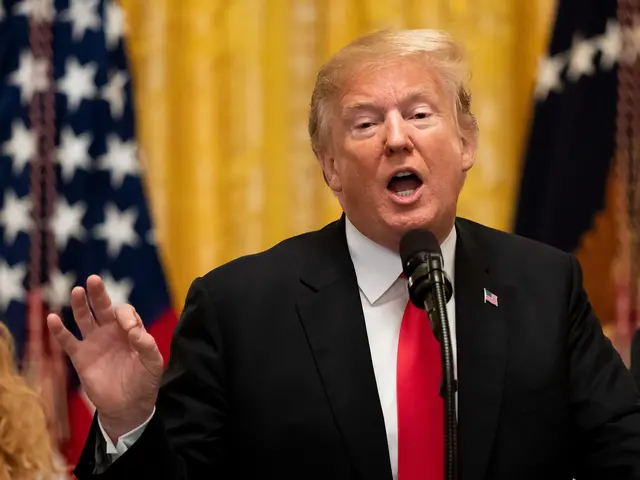U.S. President Donald Trump said on Wednesday that no casualties resulted from Iran's missiles strikes in Iraq on Tuesday, sending signals of de-escalation while threatening Tehran with fresh sanctions. "No Americans were harmed in last night's attack by the Iranian regime. We suffered no casualties," Trump said in a televised White House address after Iran launched more than a dozen ballistic missiles at Iraqi bases housing U.S. troops.
U.S. Secretary of Defense Mark Esper, along with Chairman of the Joint Chiefs of Staff Mark Milley, told reporters later in the day at the Pentagon that Iran launched 16 short-range ballistic missiles from three locations within Iran in Tuesday's attack.
Esper said that of the 16 missiles, 11 hit the Ayn al-Asad air base and at least one landed at a base near Erbil, adding that the missiles damaged tents, taxiways, parking lots and a helicopter.
Milley said that Iran's missiles "were intended to cause structural damage, destroy vehicles and aircraft, and to kill personnel."
Trump attributed the absence of casualties to precautionary measures, dispersal of forces, and effective early warning systems.
"The United States will immediately impose additional punishing economic sanctions on the Iranian regime. These powerful sanctions will remain until Iran changes its behavior," Trump said.
Trump showed his restraint in his remarks, saying that "Iran appears to be standing down," which is "a good thing" for all parties concerned.
The president highlighted the military strength of his country, mentioning that military might serves as the "best deterrent."
In an even rarer scene, Trump hinted at a potential cooperation between Washington and Tehran. "The destruction of ISIS (the Islamic State) is good for Iran, and we should work together on this and other shared priorities," he said as he concluded his speech.
The already strained U.S.-Iran tensions have escalated sharply since Qassem Soleimani, former commander the Quds Force of Islamic Revolution Guards Corps (IRGC), was killed near Baghdad International Airport by U.S. drone strikes.
Iran's Supreme Leader Ayatollah Ali Khamenei vowed "severe revenge", and IRGC said Tuesday's missile attacks targeting U.S. forces in Iraq were direct revenge against the killing of Soleimani.
Following the missile attack, leaders in Tehran and Washington attempted to convey de-escalation messages to each other via social media.
Hours after the missile attack, Iranian Foreign Minister Mohammad Javad Zarif tweeted that "Iran took concluded proportionate measures in self-defense under Article 51 of UN Charter," adding that Iran did not seek an escalation.
Trump also used Twitter to respond, saying "All is well! Missiles launched from Iran at two military bases located in Iraq. Assessment of casualties damages taking place now. So far, so good!"
While the two countries' leaders seem to be downplaying any tension, experts have cautioned that risks are still lingering.
Avery Goldstein, a professor of international relations at the University of Pennsylvania, told Xinhua that the Iran-U.S. situation is still "fluid and unresolved."
"It's tempting to hope that both sides can now declare victory and go home. Yet, it's unlikely that we've now seen the full measure of Iran's retaliation for the Suleimani killing," tweeted Richard Fontaine, CEO of the Center for a New American Security, a Washington-based think tank.
"The most acute phase may have passed, but the crisis goes on," he added.
 简体中文
简体中文

